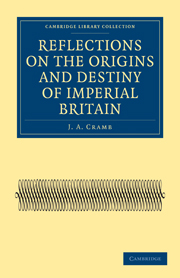LECTURE VII - THE DESTINY OF IMPERIAL BRITAIN AND THE DESTINY OF MAN
Published online by Cambridge University Press: 07 September 2011
Summary
Though life itself and all its modes are transient, but shadows cast through the richly-tinted veil of Maya upon the everlasting deep of things, yet such dreams as those of perpetual peace and of empires exempt from degeneration and decay, like the illusion of perpetual happiness, the prayer of Spinoza for some one “supreme, continuous, unending bliss,” have mocked man from the beginning of recorded history to the present hour. They are ancient as the rocks and their musings from eternity, inextinguishable as the élan of the soul imprisoned in time towards that which is beyond time.
And yet the effect of these, as of all false illusions, is but to render the value of Reality—I had almost said of the real Illusion—more poignant. Indeed, “false” and “unreal” at all times are mere designations we apply to the hours of dim and uncertain vision when tested by the standard which the moments of perfect insight afford.
Nothing is more tedious, yet nothing is more instructive, than the study of the formulated ideals, the imagings of what life might be or life ought to be, of poets or systematic philosophers. Nothing so instantly reconciles us to war as the delineations of humanity under “meek-eyed Peace”; and to the passing of visible things, empires, states, arts, laws, and this universal frame of things, as such attempts as have been made to stay time and change, and abrogate the ordinances of the world.
- Type
- Chapter
- Information
- Reflections on the Origins and Destiny of Imperial Britain , pp. 263 - 315Publisher: Cambridge University PressPrint publication year: 2010First published in: 1900



